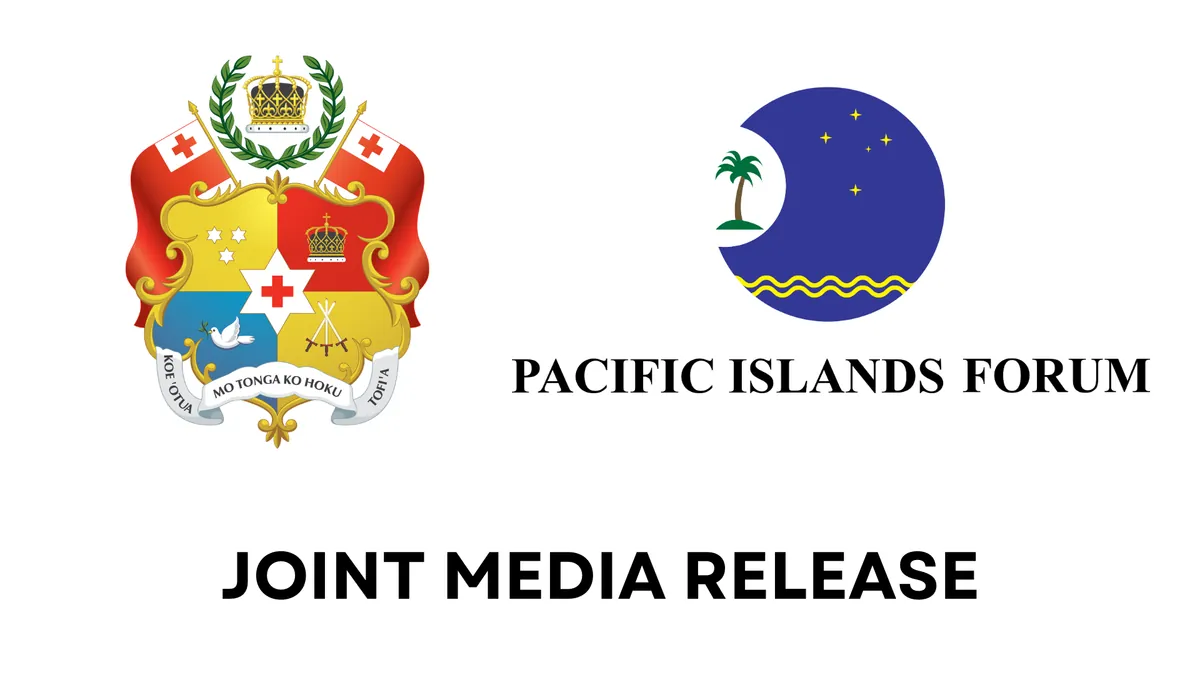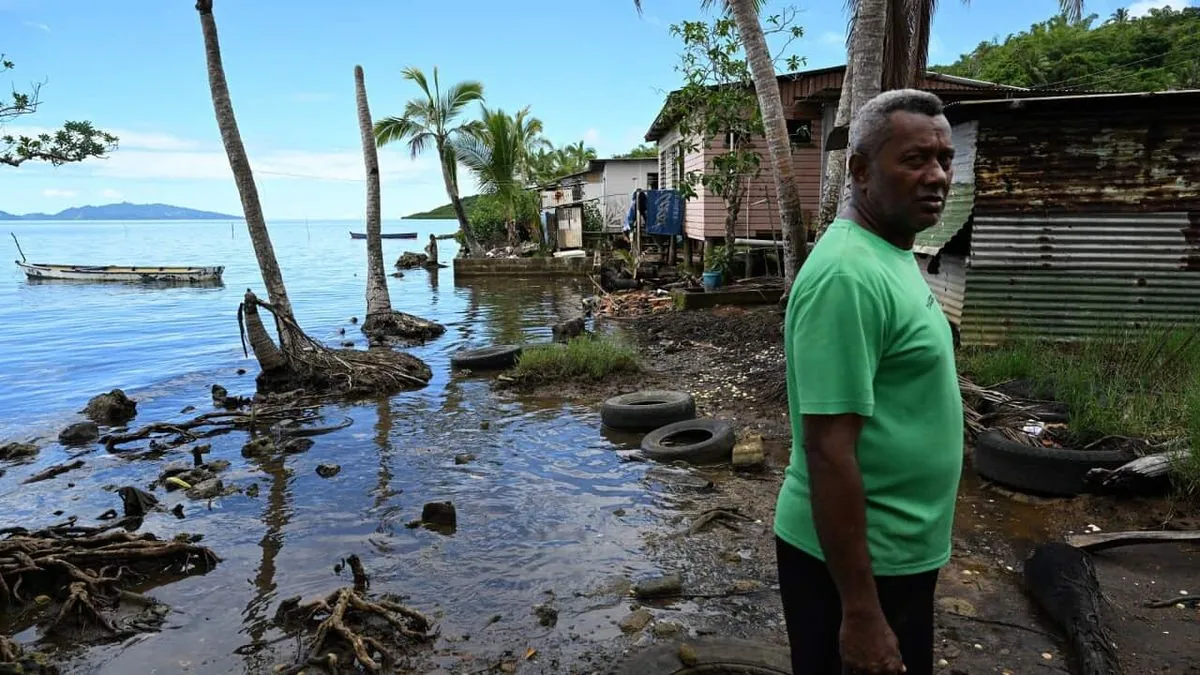Pacific Leaders Grapple with Climate Crisis Amid Growing Global Interest
Pacific Island leaders meet in Tonga, focusing on climate change while navigating increased global attention. Natural events underscore vulnerabilities as regional concerns compete with geopolitical interests.

The Pacific Islands Forum, a gathering of 18 member states, convened in Nuku'alofa, Tonga, on August 26, 2024, amidst heightened global attention. The meeting, which began with torrential rain and a magnitude 6.9 earthquake, served as a stark reminder of the natural vulnerabilities faced by many Pacific nations.
Baron Waqa, the forum's secretary-general, expressed concern about the growing geopolitical interest in the region:
"We don't want them to fight in our backyard here. Take that elsewhere."
This year's forum attracted over 1,500 delegates from more than 40 countries, reflecting the increased global focus on the Pacific. China and the United States, among 21 "dialogue partners," sent significant delegations, highlighting the region's strategic importance.
Climate change remains the primary concern for Pacific leaders. The forum has long been at the forefront of urging action on this issue, with many member states facing existential threats from rising sea levels. António Guterres, the UN Secretary-General, addressed the opening ceremony, criticizing the treatment of oceans and praising Pacific leaders for declaring a climate emergency.

Other pressing issues discussed include health and education challenges, the legacy of nuclear testing, cost of living concerns, and regional security. Sitiveni Rabuka, Fiji's prime minister, described the confluence of problems as a "polycrisis" in June 2024.
The ongoing unrest in New Caledonia, a French territory, has emerged as a contentious topic. Deadly violence erupted in May 2024 over the independence movement, and a failed attempt by Pacific leaders to visit Noumea has further strained relations.
Pacific leaders emphasize the importance of the "Pacific way" in diplomacy, which focuses on consensus-building and shared cultural heritage. Mark Brown, the Cook Islands prime minister, stressed the need for global partners to acknowledge this approach.
As the Pacific Islands Forum navigates increased global interest, leaders remain committed to addressing local concerns while engaging with the wider world. Winston Peters, New Zealand's foreign minister, summarized the situation:
"It needs to be something the world pays attention to. It's not the way it used to be. We've been a lucky people and a lucky theater. We must do our utmost to secure that in the long term."
The Pacific Islands Forum, founded in 1971, continues to evolve as it faces new challenges and opportunities in an increasingly interconnected world.


































